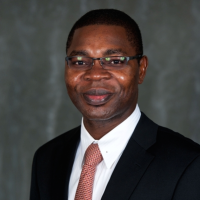Wilson Council Briefing: Education, Entrepreneurship, and Employment in Africa
After setting forth the Millennium Development Goals over a decade ago, Africa has made tremendous strides in education and employment, yet no African country can ensure universal primary education. In addition to this, 60% of African youth are unemployed. At a teleconference with Wilson Council members moderated by Dr. Diana Villiers Negroponte, Wilson Council Chair, Dr. François Pazisnewende Kaboré, the Director of the Jesuit University Institute at the Center for Research and Action for Peace (CERAP), and Dr. Monde Muyangwa, Africa Program Director at the Wilson Center, discussed possible solutions to the “youth dividend” problem on the continent, as well as the future of Africa’s growing workforce and an “unmet thirst for education” within the youth population.
Main Highlights
- By 2040, Africa is predicted to have the world’s largest workforce. Currently, Africa’s public sector can provide jobs for only a fraction of the population.
- Development is needed in the private sector to create more opportunities for jobs, as well as reform in higher education institutions to prepare youth to take such jobs.
- Entrepreneurship is needed, as well as support from governments and banks, to develop the private sector and create stable jobs for African youth within the continent.
- Entrepreneurship will reveal itself as a positive force within African communities by raising employment, improving education and driving out violence and extremism, while proving Africa to be an economic power within the global community.
Africa’s education system has improved steadily over the past few decades. From 1990-2012, enrollment in African schools doubled. School fees have been abolished in 15 African nations. However, despite being outlined as a main goal in the Millennium Development Goals 16 years ago, no single African nation can guarantee universal primary education. In Sub-Saharan Africa, only 6% of youth are enrolled in higher education institutions. Africa’s current education system is deeply focused on producing workers for the public sector, and tends to ignore the possibilities in the private sector. There is a disconnect between the content of the education being received by youth on the continent, and the needs of the economy. There is a need to reframe higher education to prepare African youth for jobs in the private sector.
Entrepreneurship provides opportunities for youth to become financially independent while building their communities, creating jobs for others within their community, and participating in their local economy. Entrepreneurship can also serve as a solution for violence and extremism in youth: studies have shown that unemployment in youth can cause anger and violence. To reform education and incorporate entrepreneurship into the African labor market, governments, universities and enterprises must work together to design the right curriculum to meet the needs of local and national development goals. Governments must encourage and regulate accreditation to universities operating entrepreneurship programs to ensure students are learning the skills needed to pursue job opportunities in the private sector, and to build an “ecosystem of entrepreneurship.” In addition to this, overall improvement is needed in higher education to ensure students receive a rounded, general education that allows flexibility in different skills and topics, especially incorporating business and entrepreneurship into different courses such as art, cinema, and culture.
The capacity for jobs in the public sector on the continent has been met. The post-colonial mindset of African education’s focus on producing civil servants for the public sector must end. It is time for comprehensive education and labor reform that places private sector development at top priority, and gives African youth the skills they need to enter this sector. Education and employment can fast track African development, address unemployment, and deal with the issue of Africa’s lack of global competitiveness. These reforms would lead to individuals within the African workforce gaining economic independence and the entire continent gaining stability and becoming an economic global force.
This summary was written by Christina Taylor, Development Intern.
For more information about the Wilson Council, please contact Rachael Moss, Senior Associate for Individual Giving, at Rachael.Moss@wilsoncenter.org or 202.691.4381.
Speakers

Director, Jesuit University Institute at the Center for Research and Action for Peace


Hosted By

Africa Program
The Africa Program works to address the most critical issues facing Africa and US-Africa relations, build mutually beneficial US-Africa relations, and enhance knowledge and understanding about Africa in the United States. The Program achieves its mission through in-depth research and analyses, public discussion, working groups, and briefings that bring together policymakers, practitioners, and subject matter experts to analyze and offer practical options for tackling key challenges in Africa and in US-Africa relations. Read more
